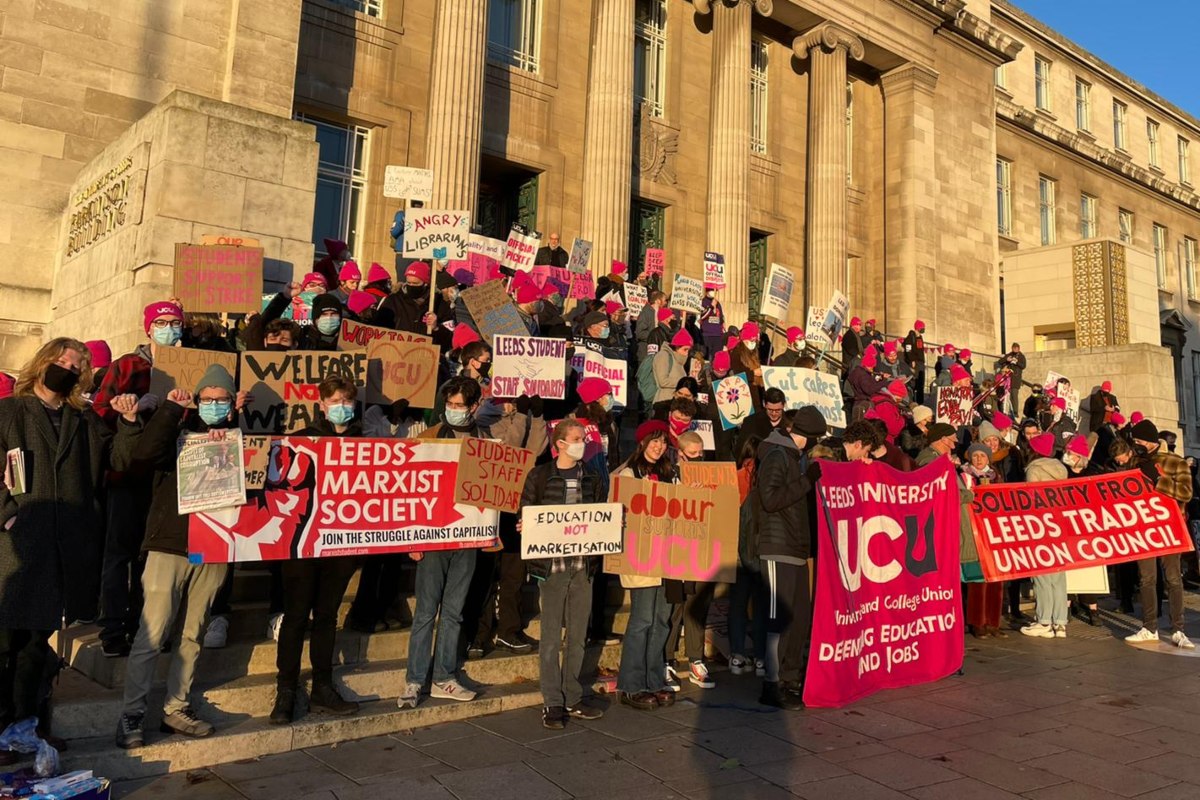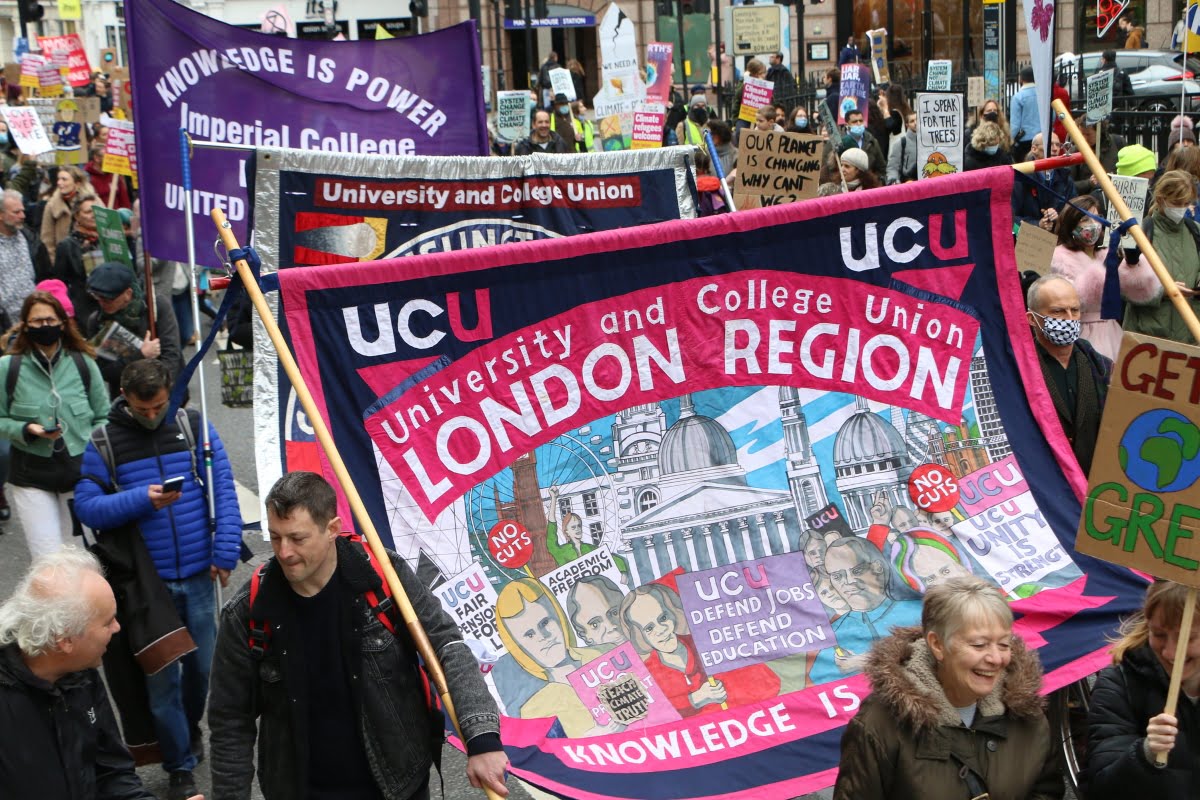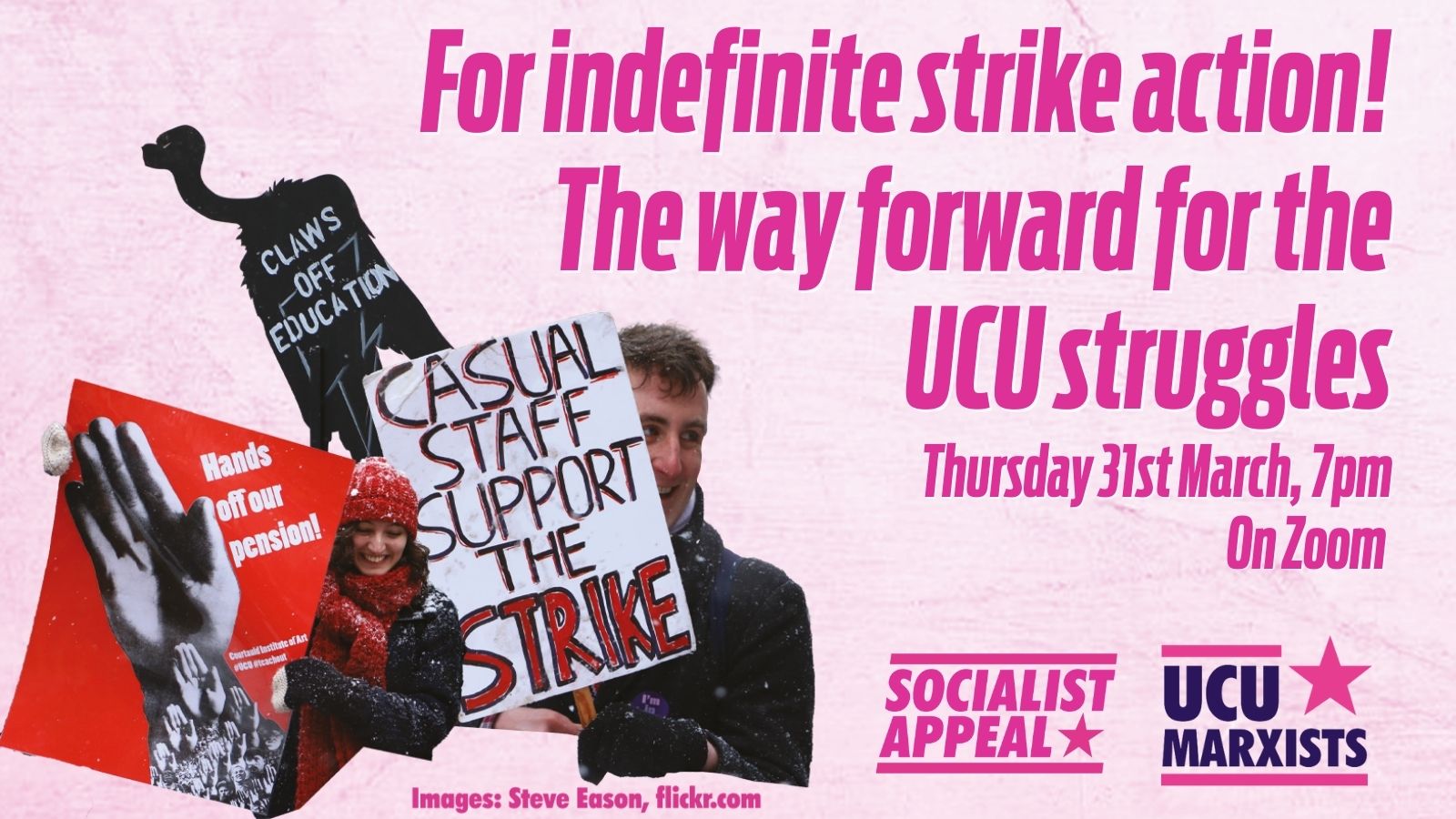UCU members in higher education are in the middle of their latest round of strike action. But without any clear strategy from the leadership, frustration is setting in. We say: let the rank and file decide! All out to defeat marketisation!
At the time of writing, UCU members at 27 universities are out on strike – the second week of action, following strikes at 40 universities last week.
This latest round of action was split across two weeks to take into account different universities’ term dates around the Easter holidays.
This decision seems to have been taken without proper consultation of branches, however. As a result, some universities were grouped into the wrong strike weeks, meaning that lecturers were out on picket lines when classes were already over.
This is indicative of one of the main problems in this strike: decisions regarding the course of the strike have consistently been taken by the leadership with little-to-no input from grassroots members.
Join UCU Marxists – supporters of Socialist Appeal in the union – on Thursday 31 March at 7pm for an open, online meeting to discuss the fighting strategy and programme that university workers need to win this struggle, and to beat back the marketisation of education.
Register for this meeting through Zoom here.
Changing mood

Reports we have received from the picket lines indicate a changing mood among the rank and file compared with the last round of action. The intransigence of the employers is clearly starting to have an effect on the morale of members.
Of course, those turning out still want to win the disputes over pensions, pay, and conditions. Indeed, many are now more determined than ever to do so.
Given the cost-of-living crisis, the attitude of some strikers has become one of “I don’t know if I can afford to strike, but I know I can’t afford not to”.
At the same time, many members are increasingly recognising that a successful fight will require a change of strategy. The limits of discontinuous action for a week or so at a time are being felt. As a result, debates are opening up about the forward in these struggles.
Some have suggested targeting university open days with protests. While this can be useful for raising awareness and building support for the strike, it cannot be used as a substitute for militant industrial action.
Others are holding out hope that a marking boycott could finally force the employers back to the negotiating table.
But as we have explained in previous articles, a marking boycott will put the most casualised members – such as those in marking support – under huge pressure. Such a boycott would have to be alongside indefinite strike action for maximum impact.
Reballot and revitalise

Currently, there are 67 out of 145 branches still participating in industrial action. Hopefully, a similar (or greater) turnout can be achieved for the new reballot to extend the strike mandate. This ballot closes at 5pm on Friday 8 April.
This should be used as an opportunity to revitalise the struggle and convince those wavering – or those who have yet to join picket lines – why it is vital that strike action is continued.
The union needs a serious plan to escalate the dispute, to show the bosses we are determined to continue fighting, and to show members we are determined to win.
Unfortunately, however, such a plan for escalation does not appear to be forthcoming from the leadership. It is clear they are hesitating to take the necessary steps forward.
In trying to balance between members who are for strike action, and the vocal minority who are against it, the UCU leadership have ended up fuelling frustration – continuing down the path of short, symbolic strikes that satisfy no one, and win us nothing.
For indefinite action
There are two upcoming Special Higher Education Sector conferences on 20 and 27 April: one on the Four Fights and the other on the USS pensions dispute, respectively.
Having separate conferences for the disputes is an indication of the soft ‘decoupling’ being pursued by the leadership, in defiance of members’ wishes to keep the struggles united.
Both conferences, however, will provide an opportunity for members to review the course of the struggles and put their views forward on what should happen next.
It is important that these conferences are allowed to democratically decide the future strategy of both disputes, and are not just treated as consultative bodies whose decisions can be dismissed.
UCU Marxists believe these conferences should discuss, debate, and vote on moving to indefinite action, coordinated with other higher education unions.
Register for our national meeting below! https://t.co/Stf1SUzdcf
— UCU Marxists (@ucumarxists) March 29, 2022
To this end, we will be raising this model motion at UCU branches to take to these conferences. We urge fellow UCU members who agree to do the same. Already, a similar motion has been passed by union activists in Sheffield (see below).
We believe this is the best strategy at the disposal of the union for winning both disputes.
Calling for all-out strike action – refusing to return to work until we win – is a tried-and-tested strategy that has been used successfully throughout the history of the trade union movement. It is the bold step that the UCU now needs to take.
Motion passed in Sheffield
The following motion was passed by UCU activists in Sheffield, with 49% voting in favour; 37% against; and 14% abstaining.
This branch notes that:
- On 2 March, the National Institute for Economic and Social Research think tank released new forecasts that included an expectation that UK inflation would peak at 8.1% in Q3 2022, leaving workers facing a cost of living crisis.
- Current pension cuts leave many higher education staff in pension poverty when they retire.
- UCU estimates that staff pay has now fallen by 25.5% after a series of below inflation pay offers since 2009, making it harder for staff to save money in other ways.
- The current disputes have been open since 2018 and the employers have shown no indication of resolving them.
- We have been on strike for over three weeks during this current dispute.
This branch believes that:
- That the current pension cuts, pay degradation, workloads, inequality and job insecurity across the higher education sector are completely unacceptable in the fullest sense of the word, meaning that winning this dispute is not optional.
- Employers have shown that they are prepared to wait us out when there is an end date in sight.
- We cannot return to work until these issues have been resolved fully, and our action needs to reflect that, as well as taking into account the employer’s increasing unwillingness to negotiate.
The branch resolves to:
- Call for the national escalation of the ongoing strike action to indefinite strike action – to take place during the next available mandate, leading up to, alongside, and if necessary beyond the marking boycott – at the next two HESC meetings on 20 and 27 April.







